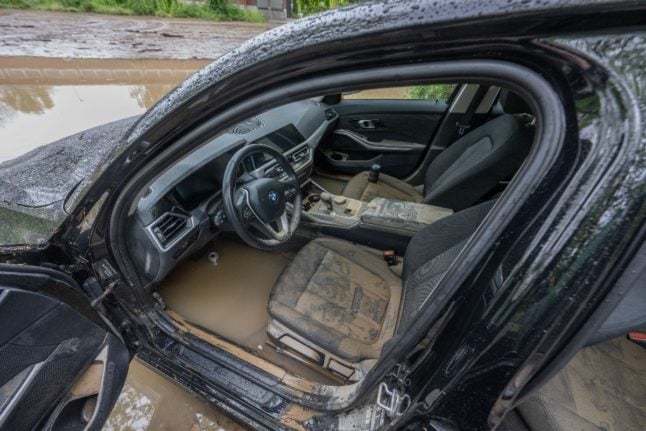This year April saw an average temperature of 11.6 degrees Celsius (53 degrees Fahrenheit), 4.5 degrees warmer than usual. The previous warmest April was in 2007, when the average temperature was 4.2 degrees above the norm.
“The climate change train is not just rolling, it’s getting faster and faster,” DWD president Wolfgang Kusch said. “If the next two days pan out as expected, we will have a new record month.”
The temperature on the North Sea coast and in the far West deviated least from the norm. But for states in central Germany – Hesse, Lower Saxony, Thuringia, Saxony and Brandenburg – the month could end up six degrees warmer than the average. On Easter Sunday the temperature in Bensheim in Hesse reached 27.7 degrees Celsius (82 degrees Fahrenheit), and on April 27 it topped 28 degrees at Bestensee in Brandenburg.
While April delivered on heat, it did not bring its proverbial spring showers. And the cloudless skies meant a record 340 hours of sunshine at weather stations in Brandenburg and Mecklenburg Western-Pomerania.
The record figures for April are part of a rising temperatures trend. The average temperature for the last 120 years is 8.3 degrees Celsius.
“This average has almost always been exceeded for the last 20 years,” Kusch said. In 2008, for example, the temperature was significantly higher than average at 9.5 percent.
Experts believe that cutting carbon emissions will not be enough to halt the climate change juggernaut.
“City planners must already start taking the future effects of climate change into account,” DWD statistician Paul Becker said. According to the Service’s calculations, concrete jungles such as Frankfurt and Berlin will have an increasing number of hot days in the forecast.
Hamburg could be particularly affected by flooding, and the heat could bring health problems to many cities. The cities must react to this danger by planting more trees to provide shade, and creating green spaces across urban areas, as well as by directing cool, fresh air from the surrounding area into the city centre, and by constructing broad boulevards, he added.




 Please whitelist us to continue reading.
Please whitelist us to continue reading.
Member comments